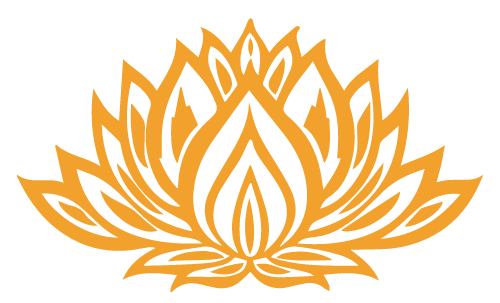DEATHWALKER'S GUIDE TO LIFE SEASON 3
EPISODE 9
Medicine & Mortality
Rainbow over Pacific Ocean at Lennox Head, Northern New South Wales, Australia
Source: Wikimedia Commons.
OCTOBER 21 & November 4, 2023
EPISODE 9
Medicine & Mortality
Death in Print: One Curious Doctor by Hilton Koppe, Meet: Educator, author and doctor Hilton Koppe, Death on Screen: Patch Adams
In this special episode of Deathwalker’s Guide to Life, Kerry Sunderland speaks with educator, doctor, podcaster and author Hilton Koppe about his remarkable memoir, One Curious Doctor: A Memoir of Medicine, Migration and Mortality. This conversation, which will be presented in two parts, was recorded live at Byron Writers Festival 2023.
Listen to Episode 9 on the following podcast platforms
Or, if you've already listened to the show, scroll down for more info and links . . .
DEATH IN PRINT
One Curious Doctor




For about 30 years, Hilton Koppe worked as a country general practitioner (GP) , after his yearning for the ocean and being under the trees – and some sage advice from a tax office worker who dabbled in clairvoyance on weekends – prompted him to relocate from Sydney to the far north coast of New South Wales.
One Curious Doctor grew out of an essay Hilton Koppe wrote about ‘spontaneous remission’, during which he discovered the power of free writing. Writing was his way of coming to terms with the challenges of working on the front line of life and death, where he discovered his medical training, which taught him to think the worst, meant it wasn't always easy to focus on hope.
When Koppe's mental health unravelled, he found himself offering forced optimism, getting angry, missing diagnoses and feeling resentful. But it's only when he was lying in an MRI scanner thinking, 'this is the most peaceful I've felt in ages', that he realised he was in trouble.
In setting out to tell his life story, Koppe has adopted an unusual narrative approach, telling the story in reverse: beginning with his Post-traumatic Stress Disorder (PTSD) diagnosis before retracing his own life story and then two generations of paternal and maternal family history.
Koppe travels to Europe to research that history and, with an extraordinary stroke of luck, finds records of his great-grandmother Hane and her husband Ben Hiras, which then lead to his grandmother Reveka, her husband Nisonas and their extended family.
Using old family photos, he writes speculative journal entries of his grandparents and great-grandparents – when writing in the voice of his grandmother Rosi he writes, ‘Stephan, he will be fine. Bert, it’s harder to tell.’ This hints at the intergenerational trauma he comes to realise he has inherited. Koppe goes on to explore, with immense compassion, the legacy of emotionally unavailable men in his family.
He also examines the perils of scientific rationalism and the limitations of the ‘logical, rational, scientific mind’ when trying to ‘grasp something mercurial’, especially when trying to understand healing.
For some readers (like me), Koppe's honest and open memoir demonstrates why there should be space in our health system for mystery – and a little more research about the power of the placebo effect.
One Curious Doctor grew out of an essay Hilton Koppe wrote about ‘spontaneous remission’, during which he discovered the power of free writing. Writing was his way of coming to terms with the challenges of working on the front line of life and death, where he discovered his medical training, which taught him to think the worst, meant it wasn't always easy to focus on hope.
When Koppe's mental health unravelled, he found himself offering forced optimism, getting angry, missing diagnoses and feeling resentful. But it's only when he was lying in an MRI scanner thinking, 'this is the most peaceful I've felt in ages', that he realised he was in trouble.
In setting out to tell his life story, Koppe has adopted an unusual narrative approach, telling the story in reverse: beginning with his Post-traumatic Stress Disorder (PTSD) diagnosis before retracing his own life story and then two generations of paternal and maternal family history.
Koppe travels to Europe to research that history and, with an extraordinary stroke of luck, finds records of his great-grandmother Hane and her husband Ben Hiras, which then lead to his grandmother Reveka, her husband Nisonas and their extended family.
Using old family photos, he writes speculative journal entries of his grandparents and great-grandparents – when writing in the voice of his grandmother Rosi he writes, ‘Stephan, he will be fine. Bert, it’s harder to tell.’ This hints at the intergenerational trauma he comes to realise he has inherited. Koppe goes on to explore, with immense compassion, the legacy of emotionally unavailable men in his family.
He also examines the perils of scientific rationalism and the limitations of the ‘logical, rational, scientific mind’ when trying to ‘grasp something mercurial’, especially when trying to understand healing.
For some readers (like me), Koppe's honest and open memoir demonstrates why there should be space in our health system for mystery – and a little more research about the power of the placebo effect.
Koppe's robust sense of humour is also interspersed throughout the more serious subject matter as he recounts how, in 2015, he fulfilled his lifetime ambition to play football for Australia when he made his debut for the Master Docceroos (Australia’s over-45 doctors' soccer team) at the annual World Medical Football Championships. He describes himself as 'the oldest and least skilful player to ever represent Australia!'
'I believe there is something in addition to love that explained her survival. Throughout her long journey with cancer, Mum always had trust in her medical team. Complete trust. Faith.'
KŌRERO / CONVERSATION
Meet Hilton Koppe

Above: Hilton Koppe
Hilton Koppe is an educator, doctor, podcaster and author who now has something in common with Beatrix Potter, JK Rowling and William Strunk (original author of the indispensable Elements of Style).
In 2022, Koppe self-published his debut book One Curious Doctor and it went on to sell more than 1,000 copies before Wakefield Press came along and offered him a traditional publishing contract.
For many years, Koppe has taught GPs how to improve their practice and, more recently, began combining medical practice focused training with creative writing tuition. He facilitates reflective writing workshops for doctors and other health professionals with the goal of deepening their compassion, overcoming professional isolation and reducing risk of burnout. The workshops have been adapted for people living with chronic and mental illnesses, as well as enthusiastic amateur writers. Koppe has been invited to present his workshops all the way from Byron Writers Festival to Harvard Medical School (and a trip to Aotearoa New Zealand is imminent).
In doing so, Koppe has also become an emerging playwright. His play, Enduring Witness, is used to facilitate conversations about end-of-life care. Hilton is co-host of Dementia in Practice, a top 100 Great Australian Pod.
But what makes him a hero in my eyes is that he put himself out on a limb and went public with his mental health struggles. He has not only learned how to take better care of himself but he is helping our health professionals do the same. And he’s also supporting them to improve their doctor/patient relationships.
In this episode, we explore Koppe’s life journey, and his take on some of life's most challenging questions.
In 2022, Koppe self-published his debut book One Curious Doctor and it went on to sell more than 1,000 copies before Wakefield Press came along and offered him a traditional publishing contract.
For many years, Koppe has taught GPs how to improve their practice and, more recently, began combining medical practice focused training with creative writing tuition. He facilitates reflective writing workshops for doctors and other health professionals with the goal of deepening their compassion, overcoming professional isolation and reducing risk of burnout. The workshops have been adapted for people living with chronic and mental illnesses, as well as enthusiastic amateur writers. Koppe has been invited to present his workshops all the way from Byron Writers Festival to Harvard Medical School (and a trip to Aotearoa New Zealand is imminent).
In doing so, Koppe has also become an emerging playwright. His play, Enduring Witness, is used to facilitate conversations about end-of-life care. Hilton is co-host of Dementia in Practice, a top 100 Great Australian Pod.
But what makes him a hero in my eyes is that he put himself out on a limb and went public with his mental health struggles. He has not only learned how to take better care of himself but he is helping our health professionals do the same. And he’s also supporting them to improve their doctor/patient relationships.
In this episode, we explore Koppe’s life journey, and his take on some of life's most challenging questions.
DEATH ON SCREEN
Patch Adams
When it comes to celebrating medical practitioners who strive to put their patients first, you can't go past the 1998 hit movie, Patch Adams. Indeed, Medmastery includes what is one of the late Robin Williams' best films in its top 14 best movies for doctors to watch.
In the film, Adams is a real hero (in both a figurative and literal sense, since it's based on a real life story) as he resists the medical training he received, which was designed to 'rigorously and ruthlessly train the humanity' out of doctors in order to make them into 'something better'.
As the famous and beloved doctor masquerading as a clown says, a doctor's job 'is to improve the quality of our patients' lives, not just to delay death'.
The movie character also says: '"What's wrong with death sir? What are we so mortally afraid of? Why can't we treat death with a certain amount of humanity and dignity,
and decency, and God forbid, maybe even humour. Death is not the enemy gentlemen. If we're going to fight a disease, let's fight one of the most terrible diseases of all, indifference.'
In the trailer (which you can watch below), it's clear the film's main message is that humour is the best medicine.
It's perhaps no surprise that a Hollywood movie dumbed down the real story. There are reports that the 'real' Patch Adams (Dr Hunter ‘Patch’ Adams) was critical of the film, saying the oversimplified depiction left him feeling misunderstood and misrepresented. Nevertheless, when Williams died in 2014, Dr Adams wrote a moving tribute to one of the greatest comedy actors of our time.
In the film, Adams is a real hero (in both a figurative and literal sense, since it's based on a real life story) as he resists the medical training he received, which was designed to 'rigorously and ruthlessly train the humanity' out of doctors in order to make them into 'something better'.
As the famous and beloved doctor masquerading as a clown says, a doctor's job 'is to improve the quality of our patients' lives, not just to delay death'.
The movie character also says: '"What's wrong with death sir? What are we so mortally afraid of? Why can't we treat death with a certain amount of humanity and dignity,
and decency, and God forbid, maybe even humour. Death is not the enemy gentlemen. If we're going to fight a disease, let's fight one of the most terrible diseases of all, indifference.'
In the trailer (which you can watch below), it's clear the film's main message is that humour is the best medicine.
It's perhaps no surprise that a Hollywood movie dumbed down the real story. There are reports that the 'real' Patch Adams (Dr Hunter ‘Patch’ Adams) was critical of the film, saying the oversimplified depiction left him feeling misunderstood and misrepresented. Nevertheless, when Williams died in 2014, Dr Adams wrote a moving tribute to one of the greatest comedy actors of our time.
Patch Adams
Catch up on previous episodes
Deathwalker's Guide to Life kicked off in 2021. Catch up by browsing past episodes, which you can listen to on all the major podcast platforms.







